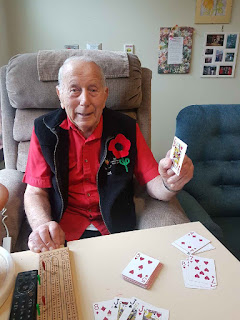Leaders' debate of value, but interruptions annoying
I wanted to share some thoughts about the B.C. provincial leaders’
debate tonight.
First, moderator Jennifer Burke did a good job of explaining
the format and rules beforehand, sticking to them and not letting any one of
the leaders get out of hand. In general, the rules were good and gave viewers
an opportunity to hear most of what each candidate was saying.
Where the format fell down was when two leaders were interrupting
each other after one asked a question, the other responded, and then a
free-for-all ensued. On a number of those occasions, it was virtually impossible
to hear what they were saying. It may make for good TV sound bites, but it
turned off potential voters and added nothing of value for voters.
Each leader had plenty of time to articulate their platform
and the economic approach to their platform and promises. It was very helpful
to hear each explain their approach to leadership, and to further explain some
of their promises.
The questions from viewers were also very helpful. In
particular, it was good that the opioid crisis came up, along with what to do
with teens aging out of foster care and the curious timing of the B.C. Family
Day, which is on a different day from the February stat holiday in almost every
other part of North America. None of those questions would likely have come from
the broadcasters who formulated most of the questions.
The broadcasters’ “consortium” (it almost sounds like “the
syndicate”), in my opinion, already has too much control over a debate that is really
an essential part of an election campaign, and thus of considerable importance
to democracy itself. The debate needs to be organized and administered by
Elections BC, with considerable input from all branches of both old and new
media.
Each leader showed strength, and each showed some weaknesses.
NDP leader John Horgan tried to explain his willingness to duke it out when the
going gets testy, but later engaged in the same type of behaviour. He also said
on one occasion that the BC Liberals would win the election.
Christy Clark, current premier and BC Liberal leader, was
completely unable to say the words “I’m sorry” about the long and protracted education
funding battle with the B.C. Teachers Federation. That battle over funding went
through three levels of court and consumed more than a decade. As Horgan said,
it affected thousands of kids who did not have the same access to resources
that earlier generations (and later generations) have access to. She was the
education minister when the initial decision to rip up a valid contract was made.
Saying “I’m sorry” would not have hurt her campaign, and would be seen by many
as a willingness to acknowledge that a mistake was made.
She also called Green Party leader Andrew Weaver “Dr. Horgan”
on one occasion.
Weaver mixed up his words on occasion and was a bit
too willing to engage in the interrupting that most viewers found annoying. He
was trying to position himself more firmly as a leader, but went overboard with
the interruptions.
That said, he likely got off the best line of the night. In
a moment that was somewhat reminiscent of Gordon Wilson’s breakthrough moment
in the 1991 leaders’ debate, he referred to both parties by saying “better than
really bad is still bad.”
Will this debate change many minds, or get more people out
to the polls? It will change some. Weaver did position the Greens as more of a
viable alternative than most people have thought, and the debate may help a
couple of his candidates to get over the finish line in first place on Vancouver
Island. Almost everywhere else, the Green vote totals will have a significant
effect on whether the BC Liberals or NDP win a particular riding. The exceptions
will be the few ridings where the Greens do not have a candidate.
Horgan came across quite strongly as being in the corner for
the average person, and hit the BC Liberals hard on some key points such as
rising MSP, BC Hydro and ICBC rates, along with housing unaffordability. His
voters will stick with him and he likely pried a few undecided voters off the
fence.
Clark had the most to lose as the sitting premier. She was
strongest in making economic arguments, as the BC Liberals do have a clear
commitment to keeping government affordable. Her references to the latest softwood
lumber trade likely helped her. She planted some doubts in the minds of some
undecided voters who may have been thinking NDP, but worry about the economy. It’s
unlikely she swayed many who are leaning Green.
Will the debate get more people to vote? Not likely. It went
up against a playoff hockey game, and what most people who didn't tune in will learn of it will come
from sound bites of the leaders talking over each other. That won’t boost turnout.
The election is two weeks from today. There will be plenty
of polls published between now and then. Remember the last election, and take
every poll result you read or hear about with a huge grain of salt.
If you are undecided, try to make personal contact with the
candidates in your riding.
The most important decision you can make is to participate
and vote. Advance polls will open on Saturday in virtually all ridings. And you
can also vote at the district returning office, on every day but the next two
Sundays. Locations are available on the Elections BC website.



Comments
Post a Comment